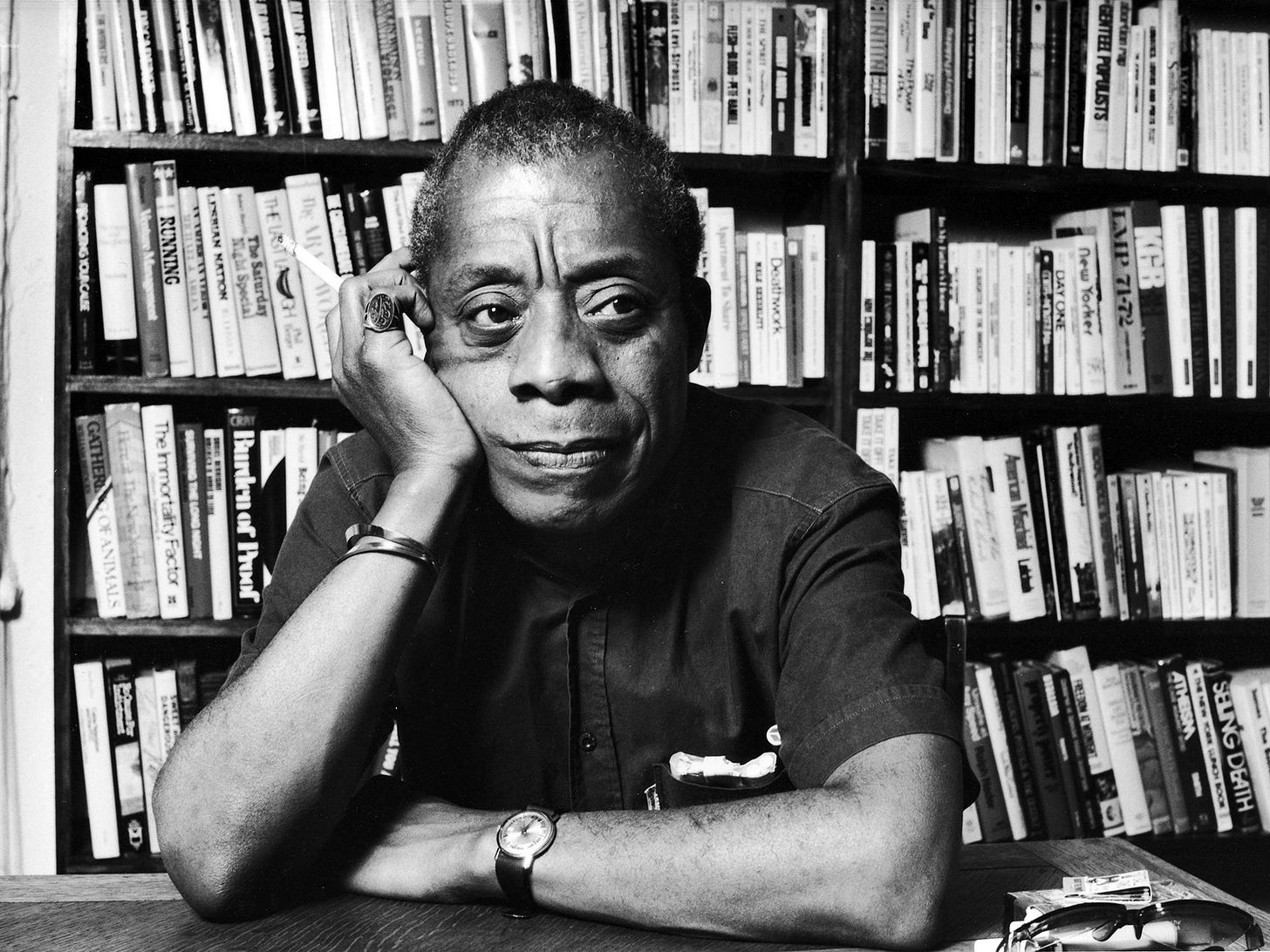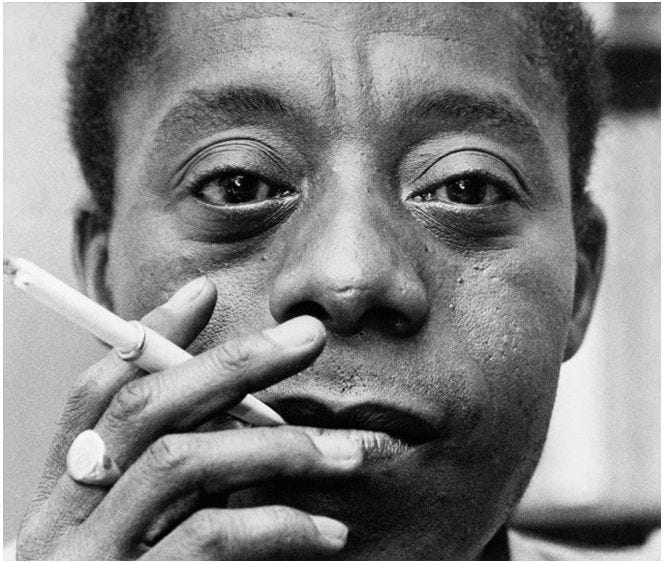James Baldwin on reading and human connection
"You think your pain and your heartbreak are unprecedented in the history of the world, but then you read."
I've been thinking about James Baldwin's words lately, how they seem to float through our digital spaces, borrowed and reborrowed until they're almost ambient wisdom: "You think your pain and your heartbreak are unprecedented in the history of the world, but then you read."
There's something about this quote that stops you in your tracks—a wake-up call that cuts straight through our tendency toward emotional exceptionalism. It challenges that very human belief that our particular sadness has a uniqueness to it, as though we've discovered some new territory of human suffering previously uncharted.
Baldwin wasn't having any of that.
James Baldwin was born in Harlem in 1924, the eldest of nine children. His stepfather was a preacher, and Baldwin himself became a junior minister as a teenager before eventually rejecting the church. Yet even after leaving the pulpit, he never quite abandoned its rhythms. His prose retains something of the sermon's cadence, that rise and fall, the building intensity that seeks to bring the listener to revelation.
When Baldwin speaks of reading as the antidote to our belief in unprecedented pain, he's not simply offering the shallow consolation that "others have suffered too." What he's proposing is much richer. He's suggesting that literature creates a communion across time and experience, a way of recognizing ourselves in others and others in ourselves.
Baldwin wrote from the intersection of multiple marginalized identities—Black, gay, poor—during some of America's most turbulent decades. He became one of our most incisive critics of American racism, homophobia, and economic inequality. He did this not from a position of detached analysis but from deep within his own experience, transmuting personal pain into universal insight.
The Complexity of Baldwin
What strikes me most about Baldwin is his refusal to simplify. In essays like "Notes of a Native Son" and "The Fire Next Time," he holds contradictions in tension: love and rage, hope and despair, belonging and exile. His writing on race in America is both a searing indictment and a profound act of love. "I love America more than any other country in the world," he wrote, "and, exactly for this reason, I insist on the right to criticize her perpetually."
This complexity extends to his fiction as well. In works like "Go Tell It on the Mountain," "Another Country," and "If Beale Street Could Talk," Baldwin created characters who defy easy categorization, who struggle against external oppression while also battling their own internal demons. They are fully human in their mess and glory.
When Baldwin tells us to read, he's inviting us into this complexity. He's suggesting that literature at its best doesn't offer simple solutions or comfortable escapes, but rather a more profound recognition—that our joys and sufferings connect us to a vast human inheritance.
The Full Quote in Context
The quote that's circulated so widely comes from a 1979 interview in The New York Times, where Baldwin was discussing the power of literature. The full context reveals something important:




